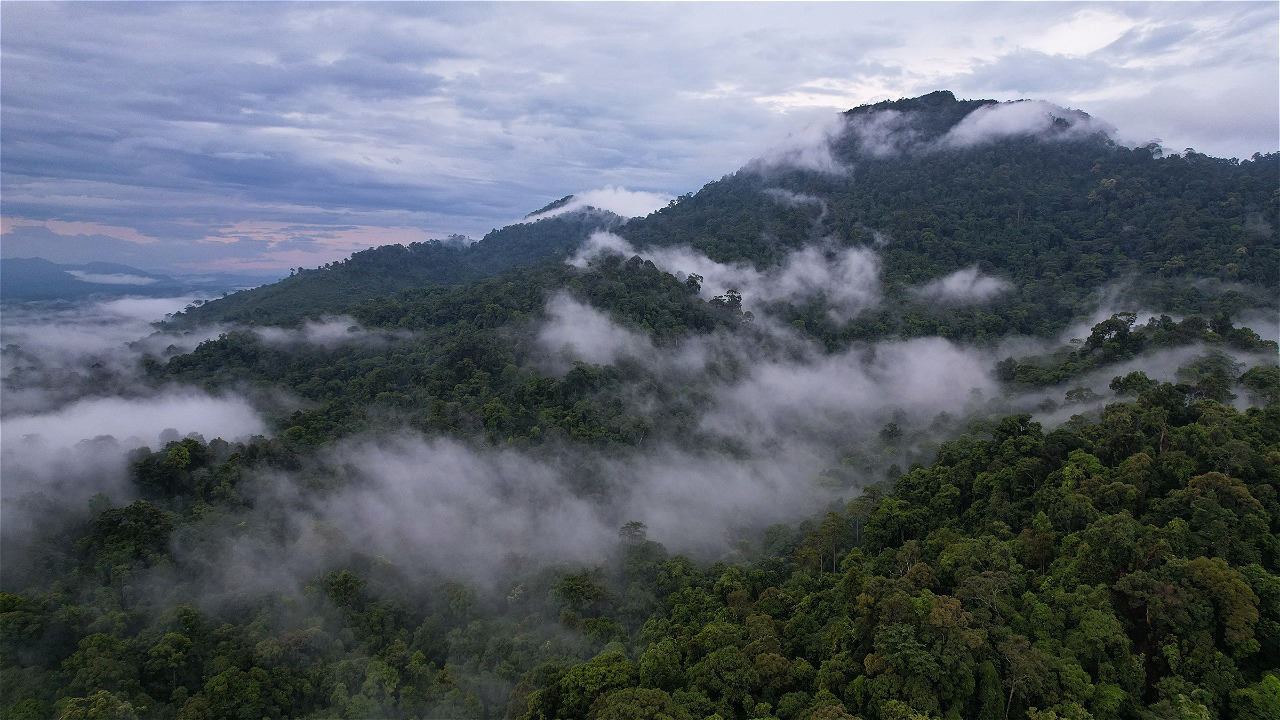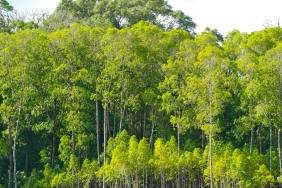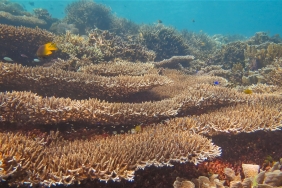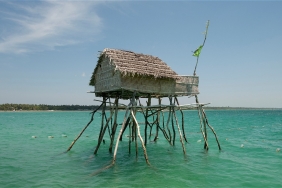WWF URGES URBAN DWELLERS TO REDUCE ECOLOGICAL FOOTPRINT WITH WISE FOOD AND ENERGY CONSUMPTION
In particular, the LPR 2016 pays attention to food and energy systems as the two systems that most affect the current condition of the Earth. This became the topic of a public discussion entitled "Urban Life with a Minimum Ecological Footprint", held by WWF-Indonesia in conjunction with the launch of the Living Planet Report 2016. The discussion highlighted the issue of food and energy at the urban level, especially from the aspect of consumption that essentially affects the course of the food and energy system that prevails in the world.
Food and energy consumption is concentrated in urban areas, which is indicated by the high greenhouse gas emissions from urban activities, which amount to 70%. This is not surprising given that 54% of the world's population now lives in cities and 80% of global purchasing power is concentrated in cities.
"What we often forget as consumers who live in cities with all the conveniences is how dependent we are on nature. One thing we need to always remember is that we only have one planet Earth with its limited natural resources," said Benja Mambai, Acting CEO of WWF-Indonesia in his remarks at the beginning of the discussion.
Changes in consumption styles can be started by saving money and becoming more critical consumers of various products consumed daily. Consumers need to pro-actively find out the origin of products before consuming them, to avoid products that are produced in ways that damage the environment, such as forest burning, illegal logging, fishing with bombs or cyanide and the use of chemicals that are harmful to the environment and human health.
"The current world food system allows industry players with large control over natural resources and capital to ignore environmental and social factors in food production and distribution patterns, resulting in an almost uncontrollable increase in the ecological footprint and economic inequality," said Cristina Eghenter, Social Development Strategy Leader of WWF-Indonesia, in her presentation.
Choosing labeled products is one of the most effective and efficient ways to ensure that the products consumed have a minimum impact on environmental sustainability. Consumers also need to use their power (consumer power) to ask producers and merchants (retailers) to provide labeled products, products that do not contribute to environmental destruction, including providing clear and reliable information about product origin and environmentally friendly consumption styles.
In the transportation sector, the ecological footprint of urban residents is significant as the number of private vehicles increases. Data from the Ministry of Energy and Mineral Resources in 2012 recorded energy use in the transportation sector at 20% of national energy consumption, of which 97% was transportation using fossil fuels. In the same year, the transportation sector ranked as the third greenhouse gas (GHG) emitter from the overall national energy sector emissions, at 28%. Among all modes of transportation, the land transportation mode dominates the share of GHG emitters, amounting to 91% of total emissions in the transportation sector.
Urban life that is full of technology and information presents a very conducive situation for consumers to make this lifestyle change. Moreover, the strong dominance of the middle class in urban areas in general makes the challenge of changing this consumption style not impossible.
-0-
For more information, please contact:
Margareth Meutia, Footprint Campaign Coordinator, WWF-Indonesia
Tel: +62 8158812844, Email: [email protected]
Anastasia Joanita, Media Relations, WWF-Indonesia
Tel: +62 81316548778, Email: [email protected]
Note to Editors:
The Living Planet Index (LPI), the scientific index used in the LPR to measure levels of biodiversity, shows the latest results of a 58 percent decline in the population size of a number of vertebrate species over a period of approximately 40 years from 1970 to 2012.
These results show a continuing downward trend from the previous report (LPR 2014), and if sustained the LPI shows an even greater decline in vertebrate animal populations by 2020, of 67% from 1970. The greatest threat to these declines is the loss of habitat for these species due to unsustainable and irresponsible agricultural practices, deforestation, infrastructure development for transportation and housing, and mining activities for energy and mineral production.
All of these activities are rooted in human consumption activities that generate an ecological footprint. The 2016 LPR details the ecological footprint of human consumption based on six categories of needs, namely the need for agricultural land, livestock land, fishing, forest products, development land and carbon sequestration. From these six categories, it can be seen that the human ecological footprint is dominated by the need for food and energy.
In its conclusions, LPR 2016 states that the change towards a sustainable Earth can only be achieved by making fundamental changes to the food and energy systems, the two systems that most affect the current condition of the Earth. One of the fundamental changes involves human consumption behavior and lifestyles, which greatly affect the production and distribution structures established for these two commodities.
About WWF-Indonesia
WWF-Indonesia is an independent national conservation organization and part of the WWF global network. Starting work in Indonesia in 1962 with the Javan Rhino study in Ujung Kulon, WWF-Indonesia is currently active in 30 fieldwork areas in 17 provinces, ranging from Aceh to Papua. Supported by around 500 staff, WWF-Indonesia works with the government, local communities, the private sector, NGOs, civil society and the public at large. From 2006 to 2013, WWF Indonesia was supported by around 64,000 supporters in the country. Visit www.wwf.or.id
About Living Planet Report
The Living Planet Report is a bi-annual scientific publication published by the global WWF network on the current state of the planet, the challenges it faces and the solutions it offers. At the heart of the report is an analysis of Living Planet Index (LPI) data and indicators that measure and assess the state of nature and the factors driving biodiversity loss. Furthermore, it demonstrates the link between ecosystem health and human well-being through ecosystem services and describes the risks and opportunities inherent in the choices humans make.
The Living Planet Report is also WWF's response to the scientific analysis, offering solutions and recommendations for a return to "One Planet" living and detailing the support available to address the challenges ahead. The Living Planet Report is a means for WWF to contribute to the advancement of scientific and public discussion on the state of nature in the hope of inspiring action to address the challenges outlined in the report.
The Living Planet Report was first published by WWF in 1998 and since 2000 has been published once every two years. Today the Living Planet Report is widely accepted as a true measure of the health of the Earth and its ability to remain a 'living planet'.





